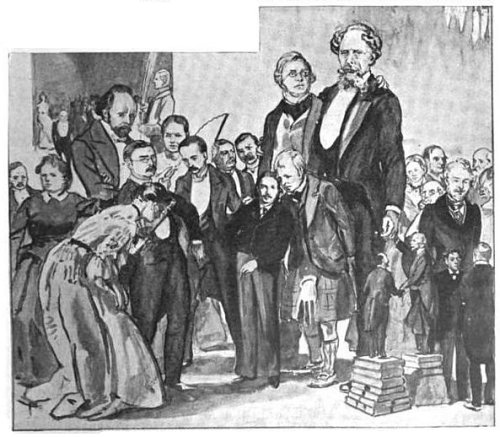
Comparative popularity of British novelists at the end of the 19th century, from Strand, August 1906. The giant is Dickens, followed by Thackeray and the now largely forgotten Hall Caine. Lesser mortals, left to right, are Thomas Hardy, Mary Elizabeth Braddon, Marie Corelli, Rudyard Kipling, Mary Augusta Ward, J.M. Barrie, Arthur Conan Doyle, Stanley Weyman, Robert Louis Stevenson, Walter Scott, Henry James, Charlotte Brontë, George Meredith, Anthony Trollope, Charles Kingsley, Edward Bulwer-Lytton, Israel Zangwill, Charles Reade, and E.F. Benson.
“It should be pointed out that this diagram does not pretend to apportion the degree of contemporary literary reputations. It only shows what kind of fiction has been most read by the masses during the past twenty years.”



